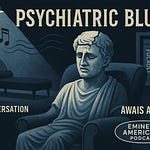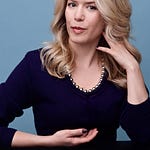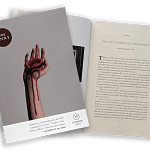I first encountered Alec Ounsworth back in 2005 or 2006, when I was an arts writer for the Valley Advocate, an alt weekly in western Massachusetts that now, like so many other alt weekles, exists only in zombie form.
The National was playing at the Iron Horse, Northampton’s storied small music venue, and I got tickets to go see them. Opening for them was Clap Your Hands Say Yeah, the band that Ounsworth had founded and fronted not too long before. I had a vague sense of who they were, and that they were hip, but I didn’t know the degree to which they’d blown up since the tour was booked with them as merely an opening act.
In the interim they’d gotten bigger—more able to attract fans—than The National. The show was packed for their set, and then when they were done most of it emptied out. I’d never seen something like that before in my life, and haven’t since (why if you’ve already paid for a ticket would you leave when you could get more good music!?).
Since then, Ounsworth has made an excellent career for himself (he still tours under the band name, but it’s entirely his operation; band members are hired for shows when needed), which is to say that he’s had his ups and downs. He’s no longer bigger than The National, and hasn’t had a hit on the charts in a while. He continues, however, to be able to book and sell out shows in the U.S., Europe, and Japan. He supports himself and his family as a musician. He collaborates with other fancy people in the industry. As I suggest to him in our conversation, he now seems to have “just the right level of fame,” where he can do most of what he wants but can also live a very regular, non-celebrity-esque life.
I connected with Alec in a more individual way a few years ago when I was hawking my book on Dave Hickey and looking for eminent people who were Hickey fans who could maybe be persuaded to blurb or otherwise offer some kind of promotional boost to the book (this is how I ended up with the Steven Soderbergh blurb, along with some inside knowledge about Soderbergh’s taste in gifs). Ounsworth was one such fan. I managed to reach him and send him a copy of my book; in turn, he sent me a lovely vinyl copy of his 2021 album New Fragility.
We talk about the arc of his career, the continuing wisdom of his choice to stay independent of record labels throughout, the art of evolving as a musician without pandering, the challenge of parenting as a touring musician, and various others things. It’s a good conversation.
One quick note about an aspect of the conversation that is slightly misleading. The opening premise is that we will discuss Jason Farago’s article on the challenge of AI to music, “A.I. Can Make Art That Feels Human. Whose Fault Is That?” We don’t really do that, but it doesn’t really matter. I’m bored of AI. You probably are too.
















Share this post